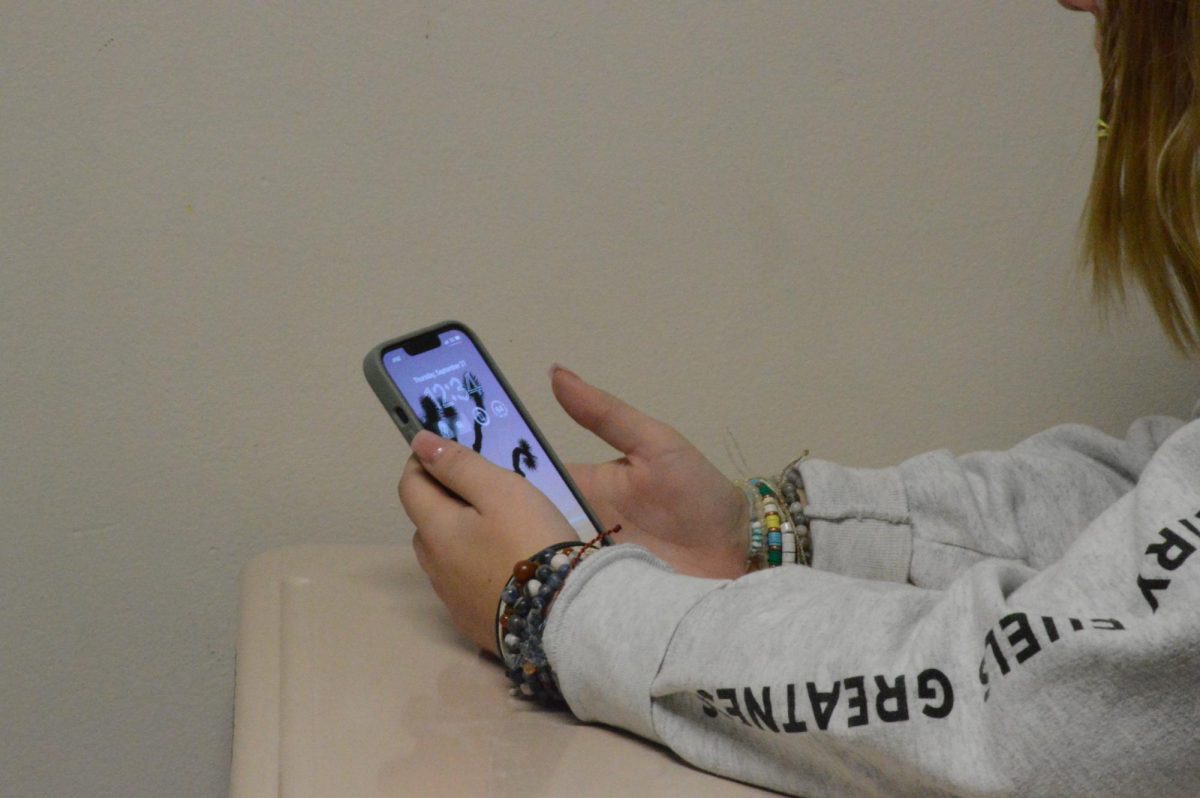Lakeland High School has always had some form of a phone policy. As of this year, it was slightly altered. Students are no longer able to have their phones in their pockets or on them in any way. The policy is now district-wide.
“I think it is unnecessary and useless that we can’t have our phone in our back pocket or pockets,” Payton Barker said.
Phones must remain within a backpack at all times or in the new phone pouches (which are located in every classroom).
“The phone policy is fine except for the ‘pocket’ rule,” Jolie Warren said.
Phone policies like this are in place at almost every school; whether or not they are strictly followed differs from school to school. While there are some beneficial aspects to a phone policy, there are also some disadvantages as well.
Phone policies can be beneficial within schools. Social media is the number one distraction for kids in school. Social media distracts students from learning and can disrupt class time.
With phones present, students aren’t fully able to give their undivided attention to what is being taught. Their attention span is divided, and they are focussing half on the lesson and half on whatever could be going on on their phones. The main reason phone policies are in place is to help kids stay focused on schoolwork.
Phones in class can also promote cheating. With new AI, it makes it easy for kids to use their phones to cheat on tests, homework, class assignments, and much more.
The way AI can make it seem like you typed it makes it difficult for the administration and teachers to catch students cheating.
Phones can also be used to take pictures of other people’s assignments and cheat that way. Nonconsensual pictures and videos are also a huge factor as to why phone policies are strictly enforced.
People are unaware of how much it can affect someone’s life if pictures taken of them are unwanted.
While phone policies are important, there are a few issues that go along with them.
Emergencies are a student’s main complaint as to why they feel the need to have their phone. If there was a situation where there was an emergency and a student needed to reach out to their parents, but their phone was unavailable, it could be dangerous. Most parents also feel more comfortable when their child has a way to contact them throughout the day.
Some students also require their phones to be present with them throughout the day due to certain medical situations. These kids rely on their phones as a way of life, and without it, it can be life-threatening. Emergencies serve as a valid excuse as to why students should be allowed access to their phones, as long as they are not misusing them.
In schools, there is almost always at least one situation where students get into fights. Phones can be hugely beneficial in these situations. If a student feels threatened in any way and there is no one around, a phone could be used to get help. This is something teachers should consider when discussing phone policies. If students are allowed their phones, that issue can be avoided.
Sudden illness is also a big reason kids need their phones at certain times during the day. If a student suddenly becomes ill and needs to be attended to or sent home, a parent would need to be reached. Schools would often use the excuse of “come to the office to call,” but in the moment of a student feeling ill, that isn’t always in the cards.
Telling students they aren’t allowed to have their phones only causes arguments and rebellious behaviors. Kids and teens, especially, are masters of doing the opposite of what they are told.
It is psychologically proven that when you tell a student not to do something, it only forces them to want to do it more. Teens are also very protective over phones and their technology and won’t give it up easily. It makes it easier for teachers and students if the phone policies are slightly changed. It would benefit teachers and students alike to not have the constant argument about phones during the day.
Overall, phone policies are important to have in place within schools. That being said, some accommodations can be made to help students and teachers alike be happy. Students should be allowed to keep their phones with them as long as they are not being used during class time. If a student does use their phone in class, then that can be punishable. In no way should a student be punished for having their phone, unused, in their pockets.
